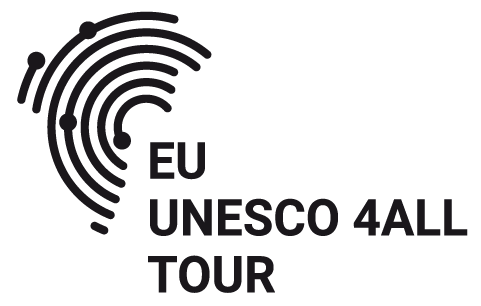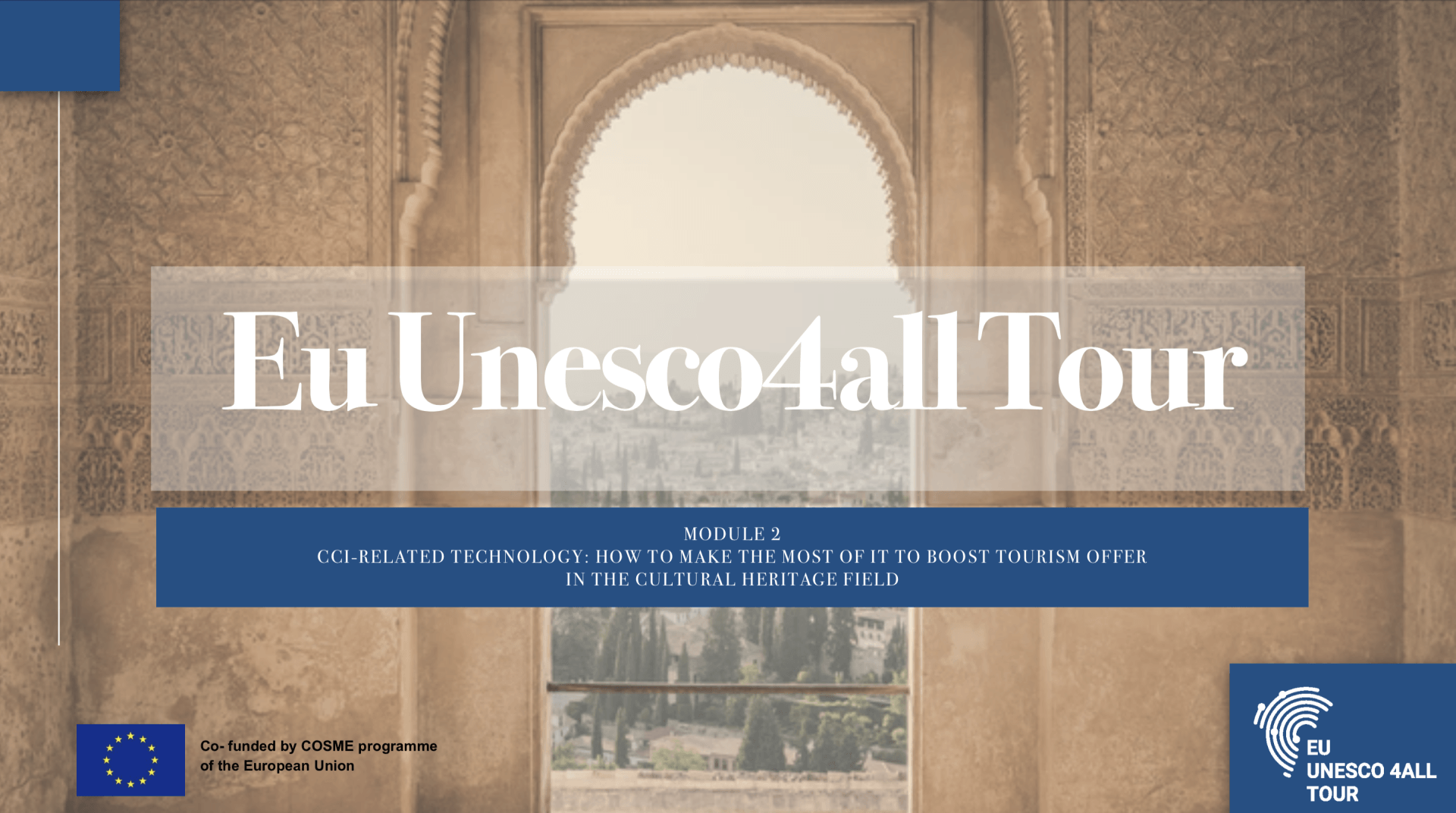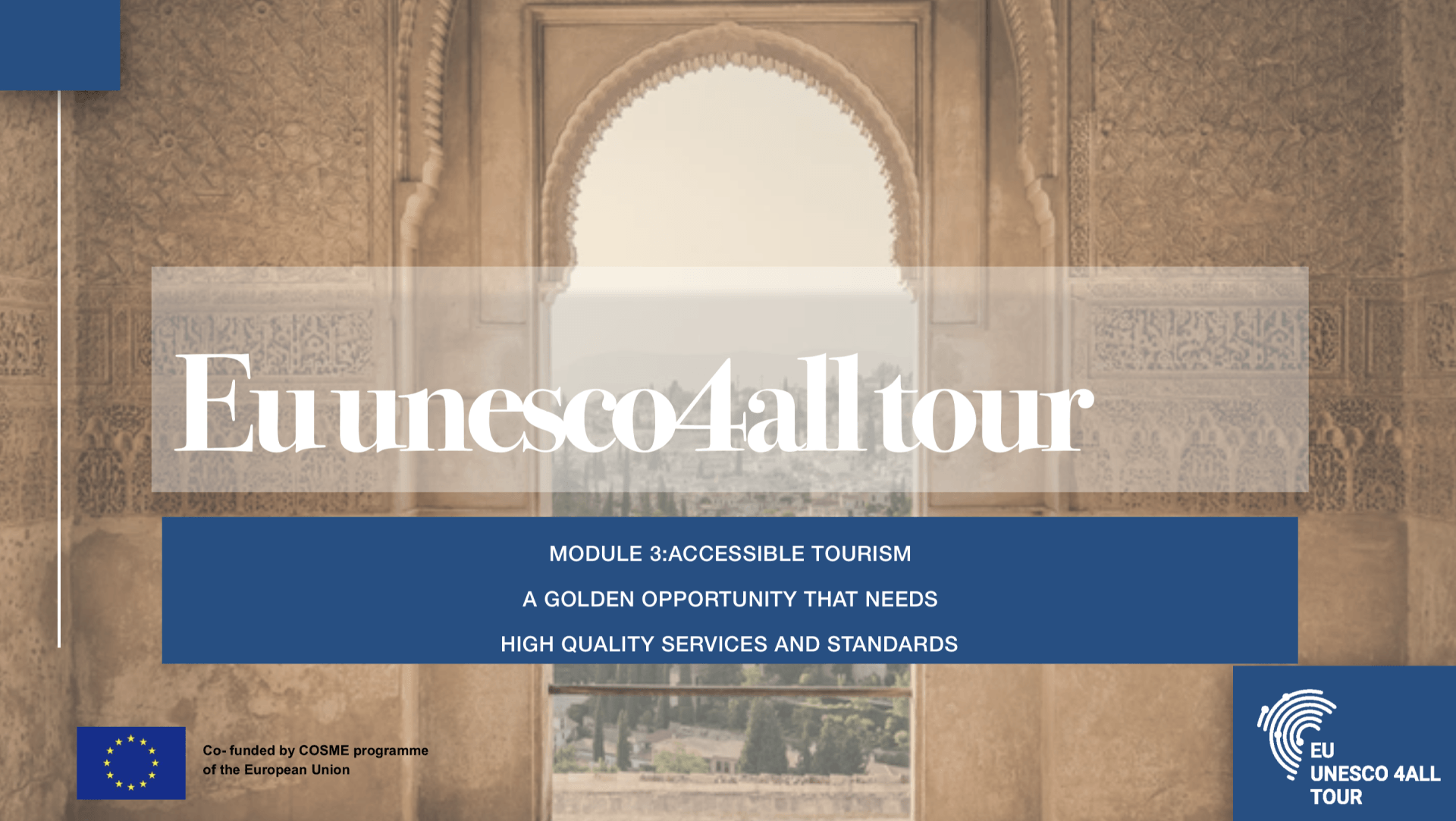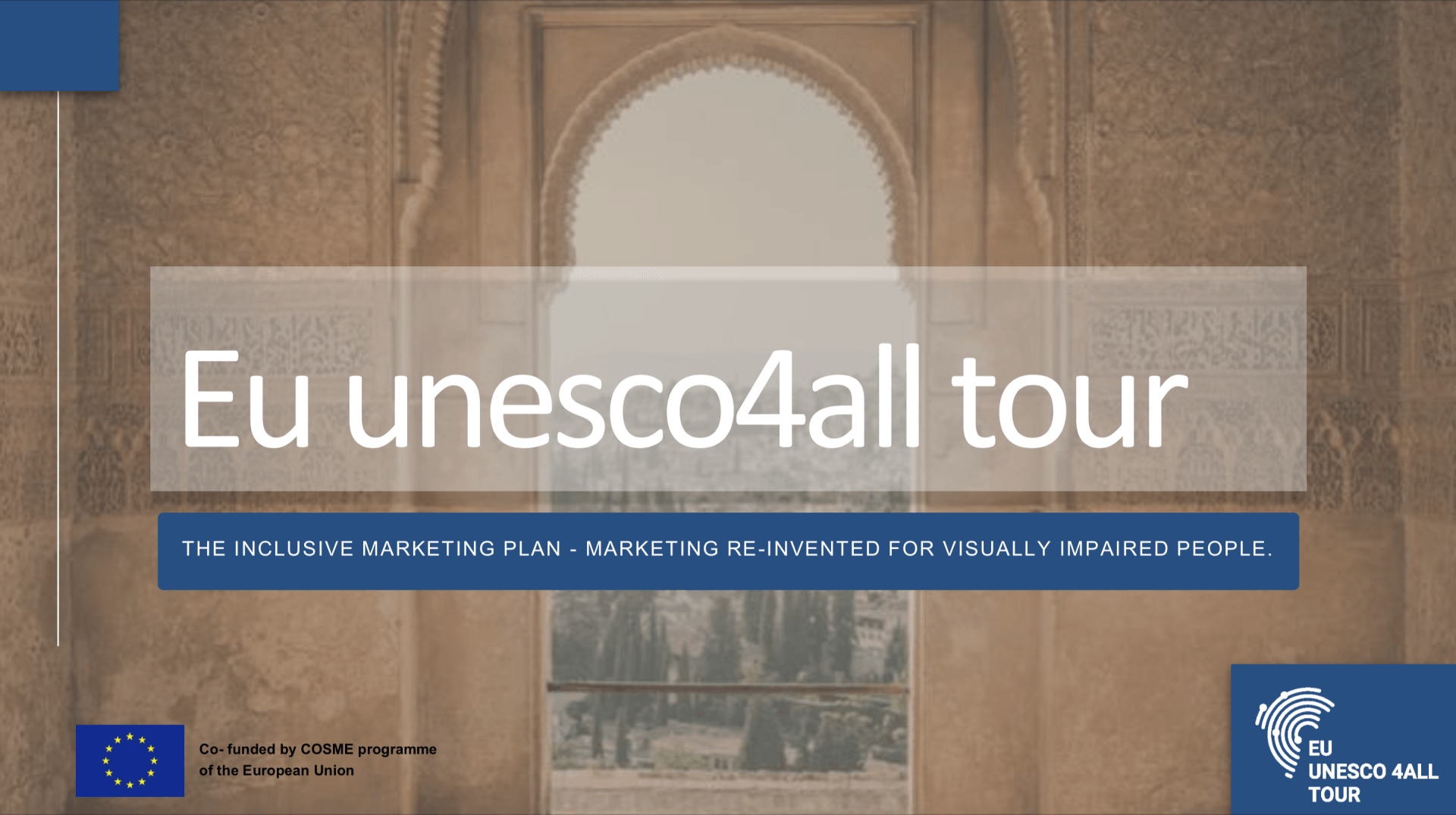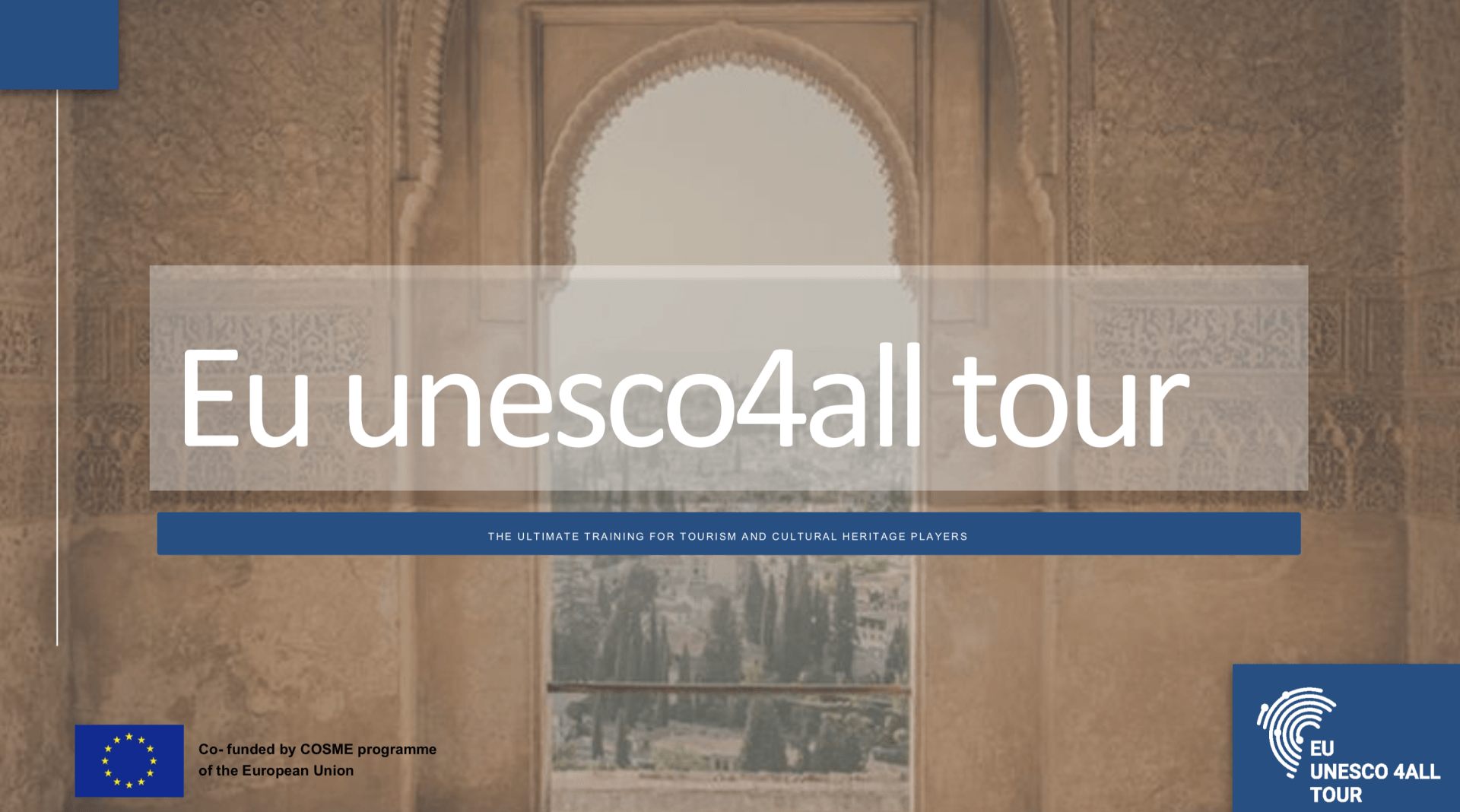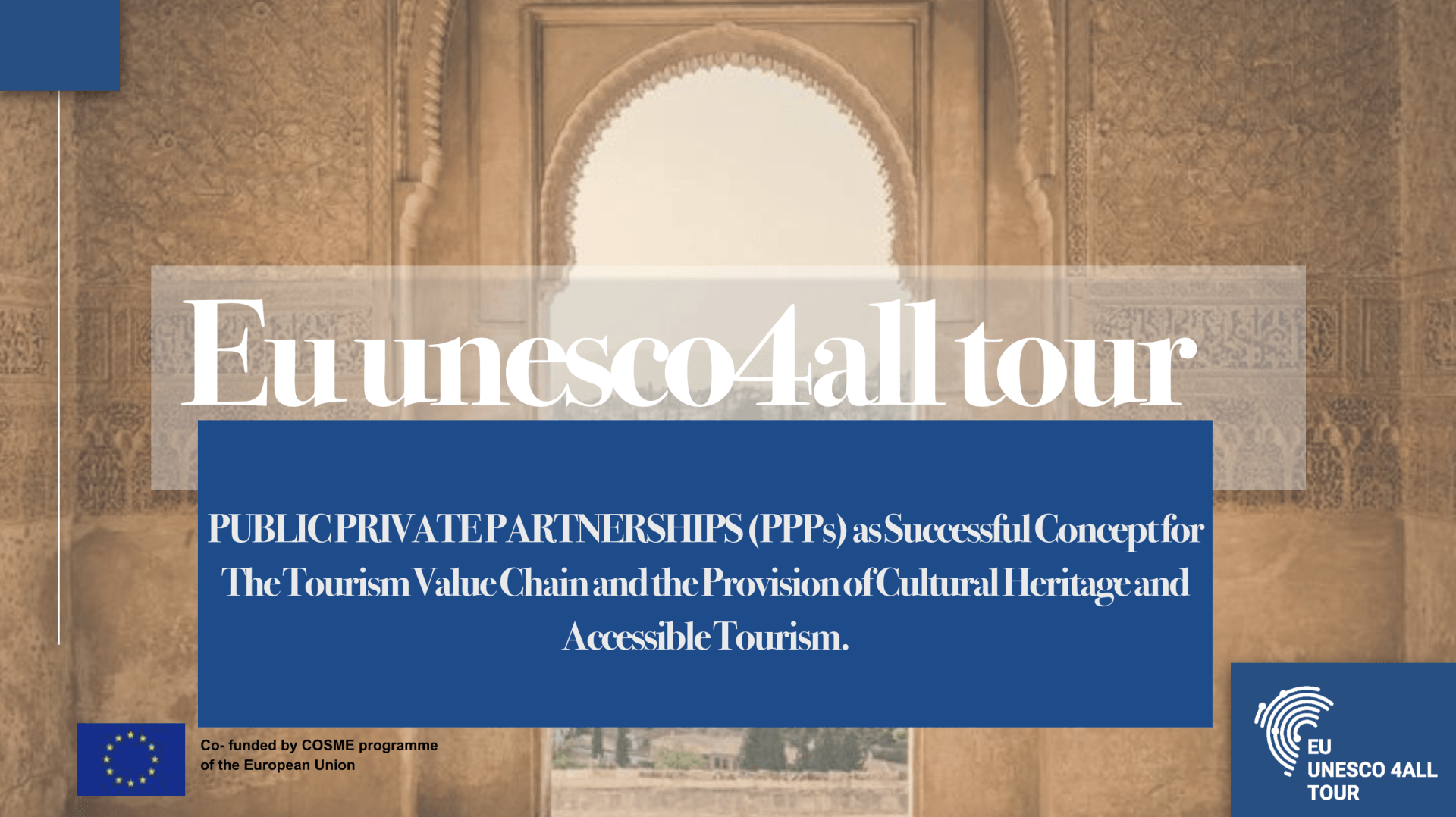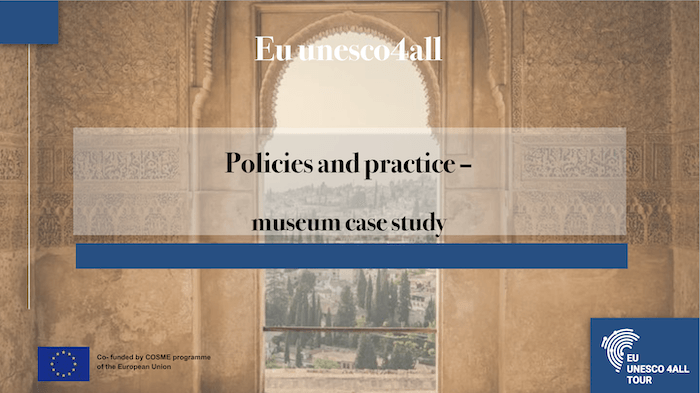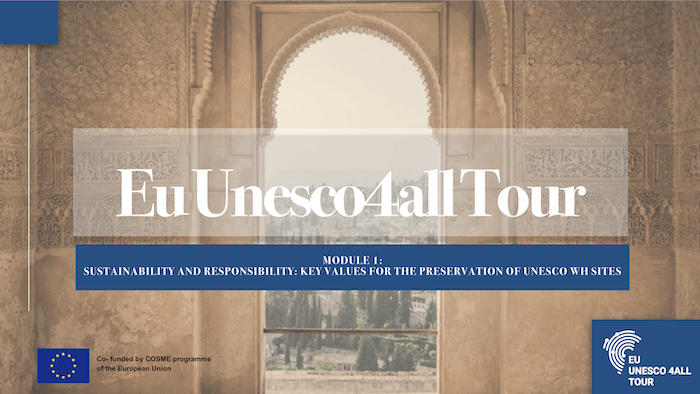Training Modules
CULTURAL AND CREATIVE INDUSTRIES-RELATED TECHNOLOGY: HOW TO MAKE THE MOST OF IT TO BOOST TOURISM OFFER IN THE CULTURAL HERITAGE FIELD OF ACCESSIBILITY
Elaborated by Antenna International, a company that creates audio and multimedia guides that help museums and cultural sites around the world. The speaker was Paola Spataro, Head of Creative Production of Antenna International. Paola is responsible for innovative productions using pioneering technologies that always place the visitor at the heart of the content development process.
Paola Spataro Linkedin
Elaborated and delivered by Antenna International, it aims to introduce how cultural and creative industries (CCI) related technologies can unlock the tourism potential, specifically for the visually impaired and blind people.
The goal of involving CCI’s to the tourism sector is to ensure sustainable growth by increasing the international competitiveness of tourism services. The CCIs are the heart of the creative economy, having a distinctive and disruptive innovation capacity in the area of social responsibility and social inclusion in the tourism sector. They enable a powerful mix of technology and innovative business models to ensure revitalisation and diversification on transnational tourism experiences.
ACCESSIBLE TOURISM: A GOLDEN OPPORTUNITY THAT NEEDS HIGH QUALITY SERVICES AND STANDARDS
Elaborated by the Typhlological Museum of Zagreb, one of the rare special public museums in Europe dealing with the problems of the disabled people, especially the visually impaired. The speaker was Zeljka Bosnar, director of the Typhlological Museum. Zeljka is graduated with a Master’s degree in Defectology Special Education and Class Teaching and a Master of Science in Education and Rehabilitation Sciences.
Elaborated and delivered by the Typhlological Museum of Zagreb, the training provides insights on how the accessible travel market can stand as a golden opportunity for cultural destinations. However, this potential needs to follow appropriated services and standards to achieve great results.
Following the idea, Typhological Museum provides specialised knowledge about what is needed to get ready for the “accessible tourism economy”, explaining the concept of “social model of disabilities”. Going through good practices in the EU, the webinar purpose is to engage new perspectives for the tourism sector to change the disability paradigm, in a way to elevate the quality of the tourism product for visually impaired and blind people.
EFFECTIVE PROMOTION OF UNESCO CULTURAL HERITAGE SITES
Elaborated by Rakursi Art Gallery. Rakursi Art Gallery was opened in 2004 in Sofia. It is a private gallery for modern and contemporary art.
Rakursi is a living space with active program, which includes exhibitions, trainings, workshops. Since 2015 the gallery works on facilitation of access to art for people with visual impairments.The speaker was Ana Todorova is a freelance artists working mainly in the sphere of painting. She has graduated from The School of the Art Institute of Chicago with a Bachelor's degree and completed her Master's from The National Art Academy in Sofia. She has a postgraduate qualification in Art Pedagogics. Since 2015 she has been working in collaboration with Rakursi Art Gallery on projects focusing on the accessibility of visually impaired people to art.
Ana Todorova
Elaborated and delivered by Rakursi Gallery, the webinar provides knowledge about effective promotion of UNESCO cultural heritage sites and focused on how to elaborate an inclusive marketing plan reinvented for visually impaired people in the tourism and cultural heritage sector. The training module introduces some important guidelines to be checked when creating a product or service targeting visually impaired people. Following the goal of differentiating the tourism offering and to highlight the value of UNESCO cultural heritage sites, the module provides interesting questions that it is important to go through to achieve a more effective accessible tourism, and also how to consolidate the mission and values of the EU UNESCO4ALL-TOUR Project.
CHANGING THE PARADIGM OF DISABILITY: HOW TECHNOLOGY CAN IMPROVE THE VISITORS WITH DISABILITIES EXPERIENCE
Elaborated by Tooteko Srl, an innovative creative and cultural enterprise with specific expertise in the cultural sector addressed to visually impaired people and the blinds, offering a disruptive innovation to turn dump piece of art to talking tactile ones for superb user experience and full inclusion of people with visual impairments. The speaker was Gilda Lombardi, co-founder - CMO at Tooteko and responsible for communication, relations with institutions, procurement, and management of international calls for tenders for the spin-off Iuav Tooteko, which deals with technologies for accessibility by the blind and design for all.
Gilda Lombardi
Elaborated and delivered by Tooteko Srl, the webinar focuses on how the implementation of disruptive technology on cultural heritage sites and museums can improve the visitors experience not only by making accessibility possible from a physical perspective but ultimately increasing the type of experience that visitors with disabilities can experienced.
The training module goes through a series of recent technologies that demonstrate how huge the impact can be on the daily life of disabled people. The technologies used as examples aim for the social inclusion of people with sensory disabilities.
For better results, the use of ‘Design for All’ offers important perspectives, as what works for a disabled person, certainly works for everyone. The enabling technology offered by the EU UNESCO4ALL TOUR is deeply route of this principle: it consists of a smart wearable device that combines “touch” and “hearing” to help the visually impaired to visualize objects they couldn’t experience otherwise.
PURCHASING POWER PARITY CONCEPT, AS A SUCCESSFUL CONCEPT FOR THE TOURISM VALUE CHAIN AND THE PROVISION OF CULTURAL HERITAGE AND ACCESSIBLE TOURISM
Elaborated by 5-senses, an enterprise established in 2006 and that works towards providing quality products and services that target tourism, hospitality, culture, and heritage especially in the Mediterranean and neighboring countries. The speaker was Dr. Nadia Theuma, that holds degrees in Anthropology and Tourism Studies and a Ph.D. in Tourism Management and is a senior business consultant with various national state agencies, constituted bodies and private entities.
Elaborated and delivered by 5-senses, the webinar focuses on the concept of Public-Private Partnership (PPPs), linking to the promotion of the tourism value chain and the provision of cultural heritage and accessible tourism. The training module introduces the definition of PPPs and the importance of the concept to help governments, especially in the leveraging of expertise and efficiency within the private sector. So, the PPP’s are agreements between the government and the private sector, for the purpose of providing public infrastructure, community facilities, and related services. Nowadays, accessible tourism is an important public aspect and is becoming an essential expression to increase sustainable development on cities.
Elaborated by the European Music Academy, a non-profit Foundation established to reflect museums at the international level, to promote research on museography and museology as a high cultural activity. EMA promotes research on museography and museology; provides constructive criticism and promote discussion on new exhibitions, pedagogical programs and other museums issues.
The speaker was Dr. Henrik Zipsane, who has been CEO of the Jamtli Foundation (a museum and heritage organization in central Sweden 2001-2019 (www.jamtli.com), and senior researcher at The Nordic Centre of Heritage Learning & Creativity since 2005 (www.nckultur.org) — an R&D organization for learning through heritage engagement, and the director of the European Museum Academy (www.europeanmuseumacademy.eu) since January 2019. He is a guest professor in heritage learning and regional development at Linköping University since 2010 and associate of Pascal Observatory since 2007 as well as associate of European Expert Network on Culture and was appointed expert on culture and adult education 2011 by the European Commission.
The training module was about the museums and their accessibility, using a very specific example of the Jamtli Museum. From the webinar we get the knowledge of the uniqueness and the very new approach for making the museum more accessible. The module provides interesting information, which goes along with EU UNESCO4ALL TOUR vision.
Elaborated by X23, an European independent, multidisciplinary, private research center founded in Italy in 1999, which is cooperating with the universities and innovation research centers in Europe and beyond, pioneering innovative projects all over Europe, providing independent analysis and support in supporting industries (micro, start-ups, scale-ups, SME, large) to develop the disruptive products to be launched onto the market. The speakers, Marika Mazzi Boem, the entrepreneur co- founder of X23, the Coordinator of the project and Anastasiia Yakush, Project manager at X23.
Elaborated and delivered by X23, it aims to introduce how responsibility and sustainability are the key issues in resolving the problem of conserving the World Heritage Sites.
The main reason of involving those to the tourism sector is to ensure sustainable growth by increasing the interest of people to the historic sites, by encouraging them to be an active member of the community and keep their history alive for future generations.

